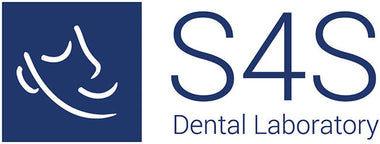WAKING UP TIRED? SLEEP APNOEA MIGHT BE WHY
Do you often wake up feeling tired, even after a full night’s sleep? You’re not alone.
Almost 70% of UK adults report regularly waking up tired. Feeling fatigue despite getting the recommended hours of rest can be extremely frustrating, especially if it’s having an impact on your professional or personal life. Struggling to focus at work, feeling irritable, or lacking energy to enjoy hobbies are common issues caused by constant fatigue.
You may think that the solution is to simply get more sleep. However, this often doesn’t help. The real culprit behind this tiredness may not be the quantity of sleep you’re getting but rather its quality.
Obstructive Sleep Apnoea (OSA) is one of the leading causes of poor-quality sleep, and it often goes undiagnosed. Left untreated, it can affect your overall health and well-being.
In this article, we’ll explore how OSA interrupts your sleep, the common signs to look out for, and how you can take steps to address it so you can wake up feeling refreshed.
What is Obstructive Sleep Apnoea?
OSA is a sleep disorder that affects your breathing during sleep. When you fall asleep, the muscles relax in your throat. In people with OSA, these muscles relax too much, causing the airway to become blocked either partially or completely.
This blockage stops airflow and prevents oxygen from reaching your lungs.
When this happens, your body briefly wakes you up to reopen the airway, although you may not even realise it.
These interruptions can happen many times a night, disrupting your sleep cycle and leaving you unrested in the morning.
Signs and symptoms of OSA
Many people with OSA aren’t aware they have it because they don’t fully wake up during these episodes. However, there are several signs and symptoms that may indicate OSA is affecting your sleep.
Loud snoring
Frequent, loud snoring is often the most recognisable sign of OSA, especially if it disrupts others’ sleep. Snoring associated with OSA tends to be more intense and irregular than typical snoring.
Gasping or choking during sleep
When the airway becomes blocked, your body instinctively responds by gasping for breath, which may partially wake you up and interrupt your sleep cycle.
Daytime fatigue
Despite what seems like a full night of sleep, people with OSA often feel excessively tired during the day. This can manifest as difficulty concentrating, low energy levels, or even the tendency to doze off unexpectedly.
Irritability and mood changes
Poor sleep quality from repeated interruptions can lead to mood changes, including irritability, anxiety, and general emotional imbalance. You may feel unusually agitated or even find yourself unintentionally expressing frustration towards those around you.

Why is treating OSA important?
Treating OSA is essential. Leaving it unmanaged can lead to serious, long-term health consequences beyond daytime fatigue.
Each episode of interrupted breathing strains the cardiovascular system, raising the risk of high blood pressure, heart disease, and stroke.
OSA is also linked to metabolic issues like type 2 diabetes, and can contribute to mental health challenges.
The good news is that there are effective treatments to help manage OSA and improve both sleep quality and overall health.
How the Sleepwell can improve your quality of sleep
Mandibular Advancement Splints (MAS) are a highly effective treatment for those with mild to moderate OSA. One of the most advanced MAS devices is the Sleepwell appliance.
The Sleepwell is a custom-made appliance that’s clinically proven to reduce OSA episodes and improve sleep quality. It works by keeping the airway open by gently holding the lower jaw in a forward position while you sleep.
Unlike bulkier MAS appliances, the Sleepwell is small, lightweight, and easy to wear. Its bespoke design means that it has a snug and secure fit without it feeling intrusive or uncomfortable during the night.
Think you might have sleep apnoea?
If you think you may be struggling with OSA, don’t wait to seek treatment.
The Sleepwell is available now and could make a significant difference in your sleep quality and overall health.
Find your nearest Sleepwell dentist today to find out more!
